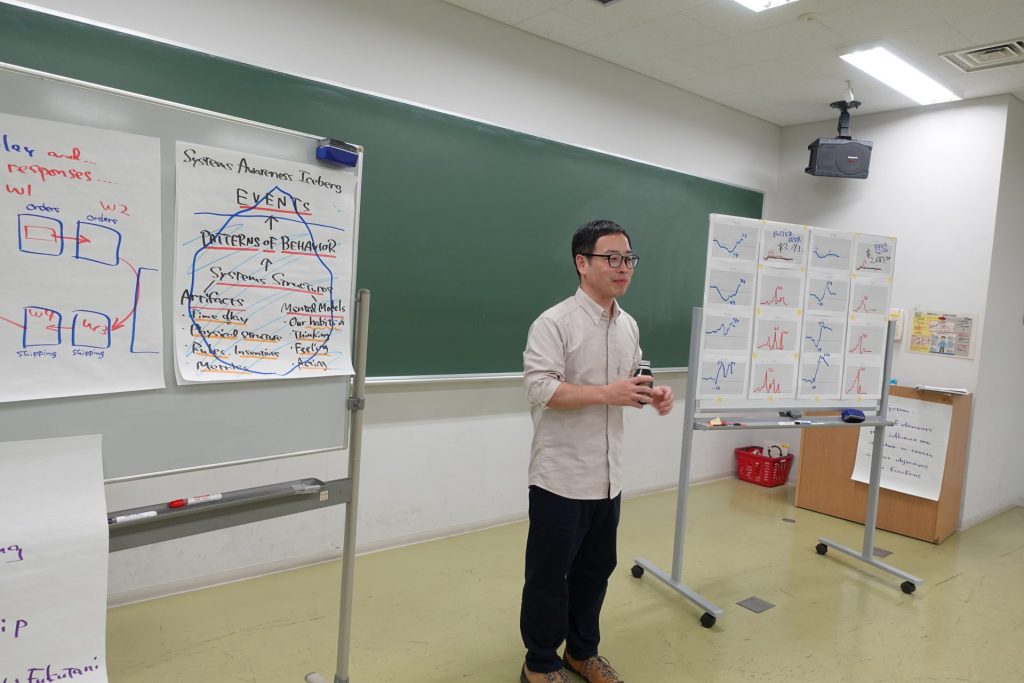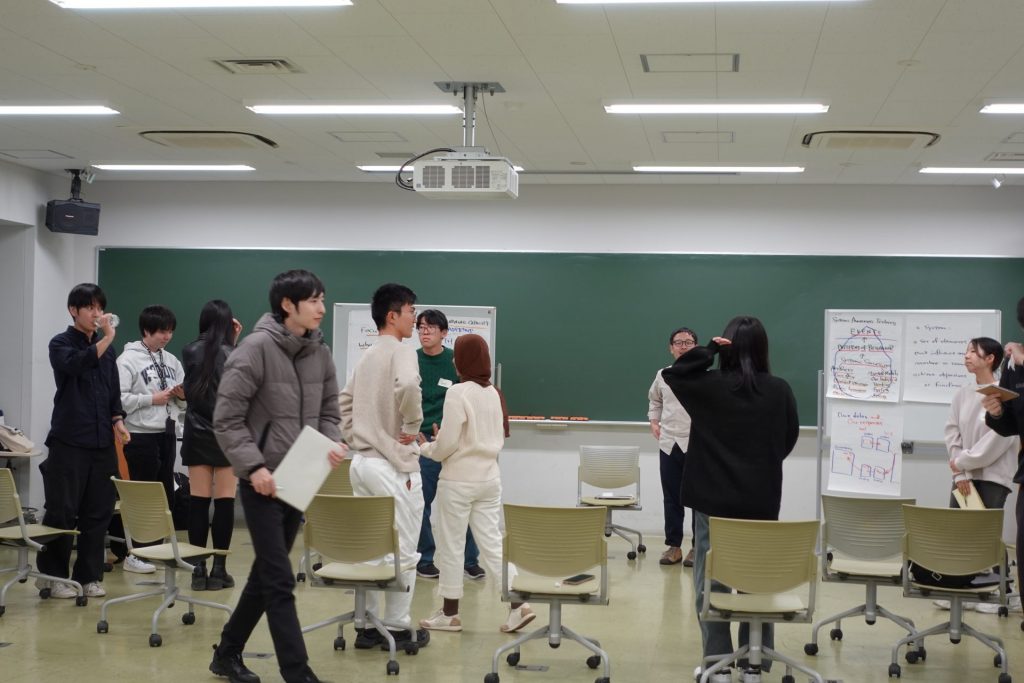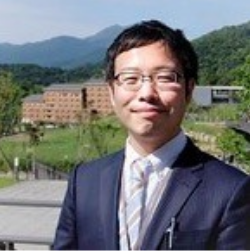When reality doesn’t change even though you know it, still act to make a difference.


Overview
In our society, causes and effects are not always found close to each other. Our actions can create unintended outcomes in distant places or times, often resulting in realities that nobody wanted. For example: using insecticides to prevent malaria, only to trigger outbreaks of other diseases; expanding roads to ease traffic, only to worsen congestion with even more cars; launching promotions to meet sales targets, only to repeat the same challenges every quarter.
How can we address such challenges that emerge from webs of interdependent connections? Systems thinking allows us to dig deeper into these “connections” and strengthen our capacity to create results we truly desire, rather than relying on superficial fixes. In this workshop, we will focus on systems thinking while also touching on the concepts of “learning organizations” and “mental models,” exploring what leadership means in our complex society.
| 📂 Category | Motivation |
| 📌 Keywords | Interdependence, Leadership |
| 🎯 Objectives | To learn perspectives and methods for recognizing complex situations and creating desired outcomes, and to apply them to participants’ own challenges. |
| 🌐 Language | English (with Japanese support) |
| 👥 Target Participants | Graduate & Undergraduate Students |
| 🗓 Format | In-person, two consecutive sessions (5 hours each). Full attendance required. |
| ✅ Past & Upcoming Sessions | #1: January 25, 2026 (Sun) 10:00 – 16:00 #2: February 8, 2026 (Sun) 10:00 – 16:00 Held annually |
| 📍 Venue | S4-202, Ookayama |
| 🌟 Recommended for | Students who: – Want to establish guiding principles for action in situations where many elements are intertwined. – Feel stuck in unproductive patterns but wish to break through and take new initiative. |
| 📊 Points | 10 points (Points to be awarded to students enrolled in the courses for credits. Please refer to the syllabus for details.) |
| 🎟️ Capacity | 30 participants |
Main Content
- Experiential games to understand how “systems” work.
- Hands-on analysis of participants’ own challenges using systems thinking tools
- Exercises for working with mental models.
Facilitator

Akihiro Fukutani
After working in corporate planning at a Japanese venture firm and marketing at a U.S. healthcare company, Fukutani supported Peter Senge’s workshops at the Society for Organizational Learning (SoL) in the U.S. For over a decade, he studied directly with Senge as a mentee. Since 2018, he has co-run the “Learning School Lab,” promoting systems thinking and learning organization practices in education. He currently serves as Systems Thinking Education Advisor at the Kumahira Security Foundation and as a board member of SoL Japan, supporting the introduction of systems thinking in middle schools, high schools, and universities.
Past Event Records
Voices from Participants
- By examining examples of complex systems and their link to leadership, I received persuasive and valuable insights. I strongly hope such excellent classes will spread widely.
- Through the game, I was able to realize the presence of systems behind organizational behavior.
Contact Faculty
Yuri Matsuzaki, Specially Appointed Associate Professor, Academy for Leadership
📩 matsuzaki.y.77a9 [at] m.isct.ac.jp
